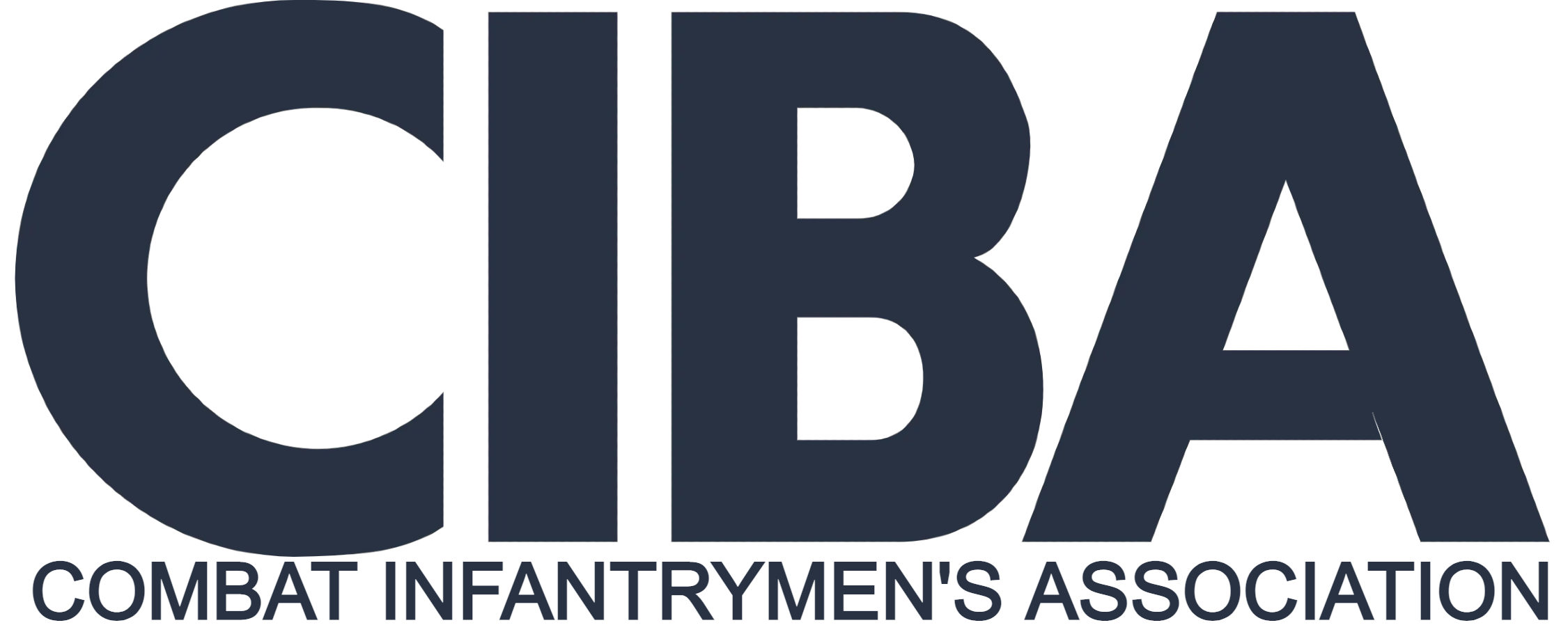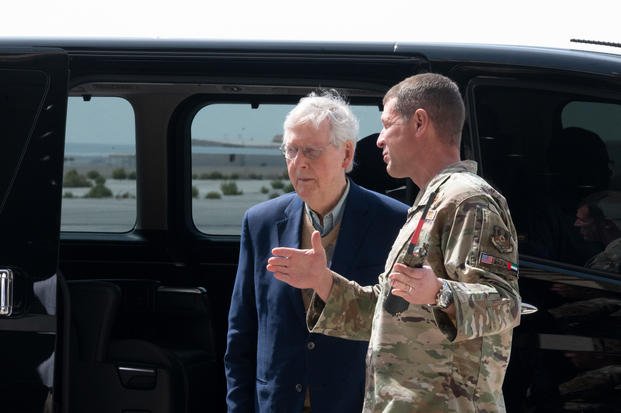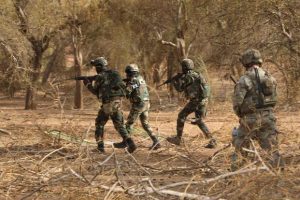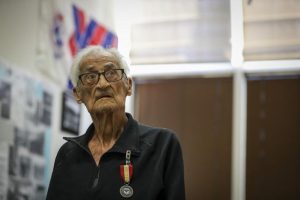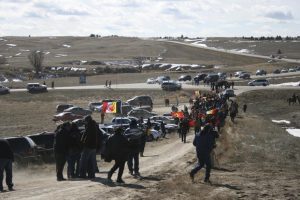If you watch cable news, you may feel dispirited by the current state of our political affairs. We are constantly told we’re too left, too right, too this and that. Partisanship exists, but seeing eye to eye isn’t a condition for finding common ground. Take, for example, my 30-year friendship with Senator Mitch McConnell. The two of us joined forces to take on the Pentagon and challenge its plans for incinerating hazardous chemical weapons near my hometown.
I first met Senator McConnell in 1985, shortly after he won his first U.S. Senate election. I was a Vietnam veteran turned antiwar environmentalist, and he was a Reagan Republican. As you might expect, we didn’t agree on a lot.
I had recently attended a community meeting with 300 other concerned citizens where Pentagon officials shared their plans to destroy chemical weapons at Blue Grass Army Depot. They intended to burn these toxic nerve agents at a Richmond plant, just one mile from a middle school and six miles from my family home.
The community was eager to see these weapons destroyed, but we wanted a safe solution. It was clear the Army wouldn’t provide the answers we were looking for without a push, so I began sharing my frustrations with the senator and a wide range of citizens.
We enlisted colleges, churches, businesses, horse farms, physicians and many more to advocate against the Pentagon’s incineration plans. Over time, our concerns snowballed into a mass of opposition that the Army couldn’t ignore. Still, we couldn’t help but feel like David gazing up at Goliath — in this case, the United States Army. We were outspent, out-lawyered, out-just about everything.
Senator McConnell was a champion of our crusade early on, and just the powerful ally we needed in Washington. I would provide the senator with the factual information he needed, and he would bring our cause and concerns straight to the Pentagon’s front door.
In 1993, after nearly a decade of steady petitioning, we successfully delayed incineration funding, forcing the Pentagon back to the drawing board and charging it with exploring safer alternatives. It was a huge breakthrough, but our work wasn’t done just yet.
By 1996, the Assembled Chemical Weapons Assessment (ACWA) program was established, which held the Army to its word on demonstrating alternatives. Thanks to Senator McConnell, whose amendment in the defense appropriations bill authorized this program, ACWA ultimately found that several safer methods existed.
Over the next decade, the Department of Defense would try every trick in the book to redirect funding for ACWA and hold on to its incineration agenda. Even after proving the efficacy of a safer, water-based neutralization method, the Army was still redirecting more than $300 million in neutralization funding to other incineration sites, putting efforts in Kentucky on hold. I laid out the evidence to Senator McConnell, who took the matter to several senior defense officials and sponsored legislation mandating the Army release these funds.
With funding finally going where it should, the Depot could begin eliminating its 523 tons of chemical agents. That effort officially wrapped up this summer when the Depot destroyed its last nerve-agent rocket, closing this chapter of American warfare for good.
The culmination of our efforts, spanning four decades, seven presidential administrations and most of my adult life, brought about an environmentally sound solution to one of the most important national security missions in a generation.
Senator McConnell and I couldn’t be more different, but our victory proves that even the unlikeliest of allies can solve real problems and make people’s lives better. Some might call this old-fashioned legislating, but I call it good leadership
Now more than ever, we need our leaders to cooperate. Senator McConnell has shown us this is possible for Kentucky. Even amid the most contentious debates, he has striven for incremental progress, leaving behind the zero-sum games and avoiding partisan gridlock. I know this because I have witnessed it firsthand throughout our 30-year friendship. Common ground is out there — for those willing to work for it.
The public is invited to an event recognizing the Blue Grass plant team and destruction of the nation’s declared chemical weapons stockpile Wednesday, Oct. 11, at 11 a.m. ET at the Armed Forces Reserve Center, 233 Battlefield Memorial Highway in Richmond, Kentucky.
Craig Williams is program director for the Kentucky Environmental Foundation in Berea.
© 2023 Lexington Herald-Leader.
Visit kentucky.com.
Distributed by Tribune Content Agency, LLC.
Story Continues
© Copyright 2023 Lexington Herald-Leader. All rights reserved. This material may not be published, broadcast, rewritten or redistributed.
Please rate this CIBA article
Vote
